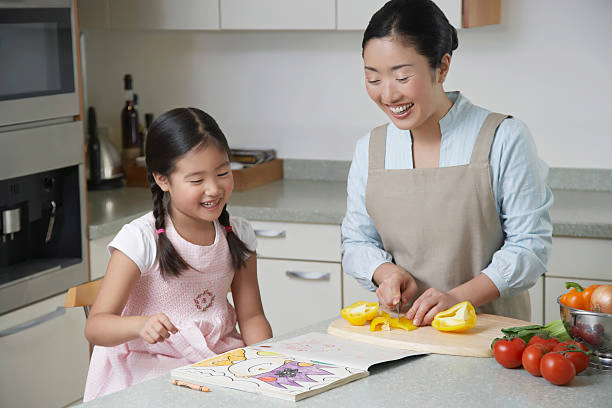
Tips To Overcome Your Hopelessness In The Kitchen
Cooking is not as easy and effortless as it is for some kitchen masters. It can be a whole new world from preparing ingredients and making the food till the last stage. But somehow in your life cooking comes to benefit you and help sustain life and health. You can’t always rely on packaged food items for your three time meals. Yes, it would definitely be easy for you to have food but the after effects of the processed food will show up gradually on your health.
Home cooked meals are always highly preferred but if you are new to cooking an entire meal on your own, and are hopeless about how perfect the dish would end up looking to be. Need not worry about that. I believe that if can read, it must be easy for you to follow a recipe for the recipe book. With gradual practices and research day by day you will master the art of meal preparation along with correct ingredient proportions needed.
Here are some tips for those feeling hopeless in the kitchen:
1. Start with one or two basic cookbooks
It’s not necessary to buy Gordon Ramsay’s cook book, instead find one or two simple cookbooks with basic recipes you think you will like. Day by day, level by level as you feel confident try new recipes once you feel confident about cooking some above basic dishes.
2. Keep the fancy equipment to a minimum
When you just start to learn cooking you don’t need to indulge yourself with gigantic or fancy kitchen equipment. Such things sometimes might overwhelm a beginner and leave him or her with frustration about not being able to cook.
These will help you gauge the doneness of meat and perfect amount of flavor, as unlike the pros, beginners need to carefully measure ingredients to produce quality meals.
3. Don’t go off-recipe until you’re more confident
You are just a beginner with no extra knowledge about ingredients that could replace any dish. Until you feel, you are quite a professional at developing new recipes from scratch, it’s important to stick to the measurements and ingredients as they’re written in the recipes.
With practice, you’ll learn how the components work together and which ingredients can be substituted for others without ruining the dish.
4. Good knives are a must
When you’re getting started, you’ll likely only require a chef’s knife, a serrated bread knife, and a paring knife. If you’re clumsy or inexperienced with cutlery and even if you’re not you can avoid injuries by wearing a pair of cut-resistant gloves.
5. Set a collection of herbs and spices
Though the set of herbs and spices you’ll have in your collection will vary based on which types of food you cook most often. They’ll be your best arsenal for creating tasty food every single time.
6. Cook in bulk
Cooking in bulk and keeping leftovers in airtight containers in your fridge or freezer comes in handy. You’ll be grateful to have some extras on hand, particularly if you make something really tasty.
7. Invest in a set of basic pans
Just like knives, a good set of pans are necessary. As a beginner, the last thing you want is for your food to stick onto the pan. Decent pans don’t have to be expensive, but look for a frying pan, stock pot, sauté pan, and cast iron skillet to start.
8. Lastly, Don’t get frustrated
Cooking is an art. Just like an artist takes time to sketch and paint for the final result to be successful, cooking requires immense patience and love for each step to have a splendid final result.
Try not to get frustrated in these moments and keep in mind that, like any new skill, cooking is a learning process that takes time and practice. Get back in there tomorrow and keep trying until you no longer feel hopeless in the kitchen. You’ll be a master chef in no time.


